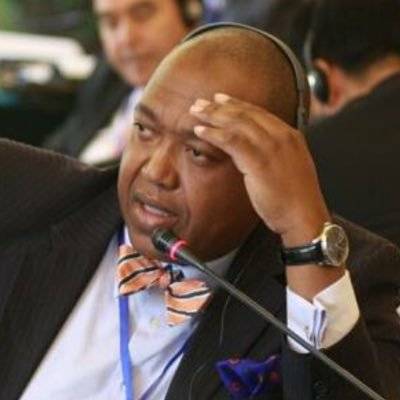Politics and egos aside, the withdrawal of the US from the Paris Agreement on climate is likely to set a dangerous precedent. The dishonouring of agreements signed by predecessors could become a commonplace in future, throwing international relations into disarray. Is Donald Trump’s decision to do so, though, more than just shattering the Obama legacy?
“In November 2014, President Barack Obama and President Xi Jinping stood together in Beijing to make a historic US-China Joint Announcement on Climate Change,” said a White House fact sheet. The former president’s enthusiasm in tackling climate change both impressed and angered many, but he was not the first to hint at doing something about it in America.
During his State of the Nation address in 2006, President George W Bush told his fellow citizens, “America is addicted to oil, which is often imported from unstable parts of the world.” Many believe that was an early sign of things to come; it suggested a new US foreign policy toward oil and those who produce it.
Obama displayed a much better understanding of climate change and its causes than many of his predecessors and often displayed his understanding on various platforms. At the 2009 UN Climate Change Conference in Copenhagen, a gathering which included the 15th Conference of the Parties (COP 15) to the UN Framework Convention on Climate Change, he was the first US president to accept responsibility for his country’s detrimental effect on climate change. “As the world’s largest economy and the world’s second largest emitter of CO2,” he told delegates, “America bears our share of responsibility in addressing climate change, and we intend to meet that responsibility.” When the Deep Water Horizon oil spill in the Gulf of Mexico happened, Obama was visibly livid. The US went on to impose one of the largest penalties in history in this regard, which angered a number of oil-producing companies and countries.
The 2015 Paris Agreement on climate change was very personal for Obama. He worked hard behind the scenes to ensure that there was a wide consensus and endorsement. The immediate reaction of many when the agreement was reached was to ask how it was going to impact in the long run on those countries that are still wholly reliant on oil as their main source of revenue. They cautioned at the time that unless countries like Saudi Arabia diversify their economies, the Paris Agreement was going to have a huge financial impact.
Article 6 of the Paris Agreement “outlines the cooperative approaches that parties can take in achieving their nationally determined carbon emissions reductions.” Simply put, countries must strive to reduce the emissions of carbon dioxide and other related gases detrimental to our environment. This has been amongst the main points of concern for the petroleum-producing countries; scientists have long warned that burning large amounts of petroleum creates large amounts of carbon dioxide that traps heat in the Earth’s atmosphere.
The announcement by President Donald Trump this week that he is withdrawing America from the Paris Agreement was not really a surprise. What is suspect, though, is the timing of it. Trump has just returned from his first overseas trip as US President. His first stop was Saudi Arabia, still the world’s largest oil-producing country. Trump met a number of leaders of other oil-producing states whilst he was in Riyadh.
Did Trump’s visit to Saudi Arabia precipitate his decision to pull out of the Paris Agreement? To what extent did his own and certain Arab leaders’ disdain, mistrust and scepticism of Barack Obama influence him to make this move? Were there other motives?
Whatever the answers are, the words of Angela Merkel earlier this week are already beginning to resonate. “The times in which we can fully count on others are somewhat over,” she told a large crowd at an election event in Bavaria, “as I have experienced in the past few days.” Her comments came in the wake of her meeting with NATO and G7 leaders. The Paris Agreement was a proud achievement for Germany and the US; Merkel and Obama demonstrated a strong bond of friendship. Indeed, Obama’s final overseas trip as President was to Germany, as was his first overseas business engagement as an ex-president.
Notwithstanding Trump’s known disdain of Obama, and his ambition to annul his immediate predecessor’s political legacy, there is a strong argument in favour of his decision to pull out of the Paris Agreement having a lot to do with his Saudi visit. Some very powerful leaders in the Arab world have had an axe to grind with Barack Obama over the years and, in Donald Trump, they have found the right person through whom to retaliate. Besides Obama’s lead in the realisation of the Paris Agreement he also pushed for and achieved the P5+1 nuclear deal with Iran. This angered many leaders in the region, including Israel’s Benjamin Netanyahu.
So what is Trump’s decision all about? The multi-billion dollar weapons contract signed between Saudi Arabia and the US in Riyadh during Trump’s visit will have to be paid for somehow. Saudi Arabia’s economy remains undiversified; oil is still its main source of revenue. The Paris Agreement threatens the continued flow of oil revenues and, by pulling out, Trump has been able to kill two birds with one stone: he has placated the Saudis by basically guaranteeing their oil income and has fulfilled an election pledge to protect American jobs with a massive arms deal which boosts the US military-industrial complex in the process. Saving the planet simply isn’t on his agenda.
The views expressed in this article belong to the author and do not necessarily reflect the editorial policy of Middle East Monitor.









